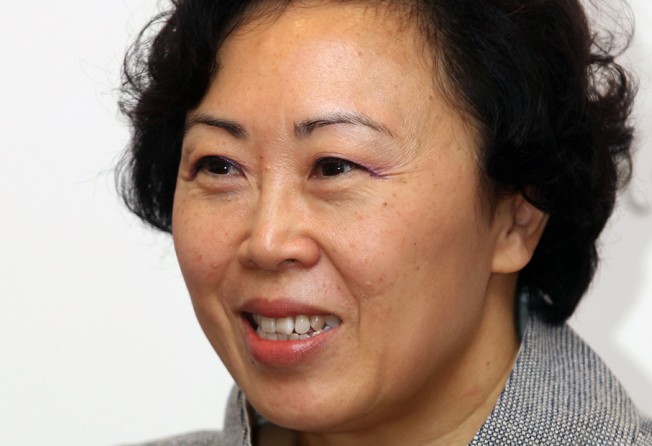Hong Kong's privileged public servants need to find some heart
Philip Yeung says as long as our senior public servants remain cocooned in a world of privilege, far removed from the rest of us, they will continue to design policies that fail the needs of the grass roots and middle class

People fret and fuss over how we will choose our next leader. I worry about who will serve and support him or her. Policy officials and mandarins have a huge hidden impact on our lives.
Hong Kong's "lost decade", a period of strategic shrinkage, has seen the disappearance of a fair society. Strategically adrift, our officials lurch from crisis to crisis, often overtaken by events. They are at least 10 years behind in meeting our chronic challenges. Under the last administration, the problems have grown bigger and messier: pensions, health care, housing and education, to name a few. It could be argued that they will remain stuck in neutral as long as senior officials enjoy privileges denied to the rest of us.
They enjoy the world's most generous pension benefits, medical coverage, housing benefits and a scandalous education allowance that enables them to escape the wretched local school system. Without any stake, they care little about what happens to it: the more they tinker with the system, the worse it gets, driving our students overseas in greater numbers.
This is a deadly structural flaw. How can you justify a system whereby those in government are insulated from the problems faced by the governed? It is human nature: what the eye does not see, the heart does not grieve.
Hong Kong has a snappy slogan for treating its public servants generously: "High pay nurtures incorruptibility". But even this is now being called into question. Alas, high pay and good benefits have the unintended consequence of shielding decision-makers from ugly social realities.
It is said that Eva Cheng Yu-wah, the former secretary for housing, refused to visit subdivided flats because she was too squeamish to face the squalor.
This insulation from the misery of the underclass and detachment from the growing disenchantment of the middle class may explain the singular lack of compassion in public policies. Yes, we have our inevitable public consultations for the budget, now in full swing. But they are largely a public relations act. Expressing contrarian views or writing indignant opinion pieces for government consumption is largely an exercise in futility.
Out of sync with popular sentiments, officials go on trotting out the same old tax measures, the same generous deductions for the propertied class. Policy formulation seems dictated by the narrow vision and self-interest of senior mandarins. In taxation policies, they are prudent to the point of stand-still predictability. Caught in an angry storm, they choose to pussyfoot below deck.
In case you haven't noticed, the tax reform measures that got quick passage over the past decade or so have been the elimination of the inheritance tax and the abrogation of import duties for wine - all pampering the privileged.
In the meantime, we were distracted by a frivolous debate over how we should define the middle class, famously decided by the secretary of finance as merely a matter of drinking coffee and watching French movies. This flippancy is symptomatic of how far removed our policymakers are from the real world, and how little they care.
The minister decries Hong Kong's narrow tax base and our ominous ageing population. Why not impose a surtax on multiple property ownership, flats that have been unoccupied for some time, and unconscionable rent increases that make so many people slaves to the landlord? And why not punish rampant property speculation with a capital gains tax in a city desperately short of land and accommodation? But don't hold your breath. None of these will ever appear on their radar.
Bureaucrats are creatures of the status quo. Except in this case, the status quo is a product of their making. The secretary of finance has a decade's worth of social wrongs to right.
For once, could our decision-makers not leave their sheltered, antiseptic lives and plumb the depths of despair of their people, rather than wait until they retire to rue missed opportunities to serve? As one aphorism goes, "Service to the public is the rent you pay for your space on earth". Each year, the government chooses candidates with the right attributes in the civil service examinations. But there is one attribute singularly missing in its recruitment exercise: the capacity for compassion. Cocooned in comfort and security, few officials give a thought to the plight of the people.
My ideal civil servant is the former permanent secretary for home affairs, Shelley Lee Lai-kuen, known affectionately as "Everybody's Mom". It was she who joined forces with Carrie Lam Cheng Yuet-ngor and others to set up a special fund for the orphaned children of severe acute respiratory syndrome victims.
I must say that Chief Executive Leung Chun-ying has been handed a poisoned chalice. He has been busy trying to put out fires started by his morally bankrupt and myopic predecessor who sleepwalked Hong Kong into a volcanic era of unprecedented social inequalities. It is up to his team to show that there is such a thing as "having a heart" in policymaking.
Philip Yeung is a former speechwriter to the president of the Hong Kong University of Science and Technology. [email protected]